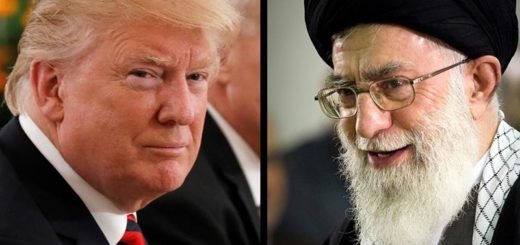Sino-Israeli Ties: Soft Areas Placating Washington

The People’s Republic of China and Israel’s engagements have undergone various turbulent episodes, but have managed to sustain the growth, which was quoted by Netanyahu as a “Marriage made in Heaven.”The nature of their bilateral ties has undergone subsequent changes over the years. We can observe this from the military transfers existing till Phalcon and Harpy crisis, transforming to economic and agricultural cooperation and into technology and innovation cooperation at the latest. The two very ancient civilizations along the opposite ends of the Asian continent have adopted a very pragmatic approach to various conflicting interests and opinions on a long term view of the mutual benefits.
China’s interests in Israel are crystal clear- Tel Aviv’s advanced technology and its strategic position on Belt and Road initiative. For Israel, the world’s second-largest economy is a great investor for their R&D and infrastructure initiatives and an opportunity to decrease the over-dependence of their export market on western nations.
Israel is a traditional US ally and is dependent on Washington for military security, veto power on UN bodies, and much more. The deteriorating US-China relations have worsened since the advent of Donald Trump, and the pandemic has added fuel to the fire. The foreign policies of allies of both powers are going to be influenced severely by the present situation. Sino-Israeli relations, which have been a victim of power-play of Washington and Beijing since its official advent in 1992, can expect a lot of abstains and warnings from seriously concerned Trump administration. Very recently, Israel, being a partner in Clean network initiative by Washington, is nearing a deal to commit not to use Chinese technology for its next-generation 5G network. It shows how Tel Aviv pays heed to US pressure in the time of the pandemic.

Bilateral trade remains the crux of Israel China relations, which amounts to USD 15.3 Billion in 2018. China is Israel’s largest trading partner in Asia and the third-largest in the world. There have also been amble investments in infrastructure and technology, including handing over of Haifa port and extension of Ashdod port, Red-Med railway link, and digging of Carmel tunnel. This article takes a divergence from the traditional method of compiling significant areas of cooperation and focuses much on such “Insensitive areas of cooperation” that China and Israel maintain amidst the worsening trade war. These soft areas of cooperation such as education, Innovation, and Tourism helps Israel to prevent itself disentangling from China without enraging Washington
Historical Background: An Unsuccessful Trajectory of Military Ties
Israel was among one of the first non-socialist countries and the first country in the middle-east to recognize the People’s republic of China as early as in 1950. The Korean war and 1955 Afro-Asian conference in Bandung, which established closer ties between PRC and Arab nations, were the two initial setbacks that prevented any positive developments in ties during this period.
The bilateral relations unofficially began in 1979 when Israeli Businessman Saul Eisenberg arranged a covert meeting that resulted in the transfer of military technology for the first time. Israel’s military technology was a relief to China to deal with Vietnamese conflicts. The Israel- Egypt peace treaty in 1979 waved a green flag to increasing ties.
In 1992 Beijing and Tel Aviv established formal diplomatic relations. By the mid-1990s, Israel agreed to sell the PHALCON advanced airborne radar system. The improved AWACS would have helped PLA in gathering the control of an aircraft from a distance. The US disagreed, stating it contained restricted US -origin technology, owing to its concerns over Beijing’s increasing military strength. Despite the continued assurance of the Israeli government, Tel Aviv cancelled the deal in 2000.
The second incident arose in 2003-2004 when China requested the up-gradation and supply of spare parts for Harpy unmanned aerial vehicles. It was purchased from Israel in 1994. The US and Taiwan who worried about the usage of these drones in the Taiwan strait in the event of a conflict resisted this. It led to the scrapping of China’s request.
These two incidents created a rift in military deals between two nations, both rooted in US interference. Agricultural cooperation between both nations have been strong since the start. However, the pragmatic policy approach of China never reacted with a halt. In later years we saw the engagement slowly expanded to the Innovation, infrastructure, and education sectors.

Areas insensitive to a concerned Washington
INNOVATION PARTNERSHIP
Israel is a technological and Innovation powerhouse, which is the prominent incentive for China. In the coming years, China is going to increase its focus on domestic research and development and knowledge-intensive industries and services. 2035 is the target year for making China a world leader in Innovation based on the 19th Communist party congress report. Innovation is going to be the crux of bilateral ties owing to China’s hunger for it and Israel’s proven expertise. In 2012 the Israeli cabinet approved an agreement to support joint ventures in Research and Development(R&D) sector with China. The China-Israel joint committee for innovation Cooperation was established in May 2014. It is a government to government mechanism, including ministries and agencies from both sides to boost Innovation in each field. The setting up of the China-Israel Innovation Development fund in November 2014 was a boost to the measures. The China-Israel Changzhou Innovation Park (CIP) Initiative was started to provide a unique platform for the Israeli companies that seeks to penetrate the Chinese market. In 2015, Beijing and Tel Aviv signed a three-year action plan on innovation cooperation(2015-2017). This plan aimed to act as a pushing factor for innovation cooperation in various fields such as culture, science, and technology, education, and health. Israel needs higher investments from countries such as China to maintain its competitive edge in the innovation sector.
On PM Netanyahu’s visit to Beijing in 2017, Both countries elevated their ties to an “Innovative Comprehensive Partnership.” China is more intended to invest in hi-tech, agriculture, water, med-tech, and biotech industries of Israel.
2019 saw the unveiling of some significant steps on innovation cooperation such as The China-Israel innovation hub(Shangai) in Taopu smart city, mainly focusing on Joint R&D projects.

ACADEMIA
Educational ties between Beijing and Tel Aviv is an influential element considering the nature of their bilateral relations. Universities are the home of most innovations, and student exchanges can increase the familiarity of the host nation among the students and the public hence fostering relations in the future.
The student exchanges between both countries have started as early as in 1993 but have remained modest then. In 2012, a comprehensive academic plan was introduced by the Israeli committee for higher education(CHE) and the ministry of finance to promote educational engagements with China and India, which provides 350 scholarships annually for Chinese students. In 2014, Tsinghua University and Tel Aviv University established the XIN R&D center in the hope of building a transnational, interdisciplinary innovation platform. A “7+7” Research-based university alliance system by both governments foster academic cooperation in 2015. In the same year, Guangdong, Technion Israel Institute of Technology(GTIT) was established by a partnership of Shantou University and Technion Israel Institute of technology focusing on engineering and life sciences.
A joint research program of the Israel Science Foundation(ISF) and its Chinese counterpart(NNSF) is worth a mutual investment worth millions of dollars. In the 2016 Ben-Gurion University of the Negev established a joint centre for entrepreneurship and Innovation with Jilin University. Various senior-level academic exchanges and visits have also been reported. There are two Confucious universities in Israel. Confucious universities are set up to promote the Chinese language and culture.
In order to overcome the language barrier for international students, CHE has expanded its bilingual academic programs and converted some programs in Hebrew to English. Recently, more number of Chinese universities are offering Jewish, Hebrew, and Israeli studies such as Nanjing and Henan Universities. There are bilateral fellowship exchanges on a small number.
In 2020, CHE has decided to continue providing scholarships for outstanding students from China and India targeted on high-tech sectors such as Data mining, Nano-Photonics, food safety, and Business intelligence for cybersecurity. It aims to attract more international students to Israel, whose statistics are meager comparatively. Until now, the US has not expressed much concern over the educational exchanges between Beijing and Tel Aviv. The recent moves by both predict a rapid increase in these engagements in the foreseeable future
TOURISM AND CULTURAL RELATIONS
Tourist flows from China to Israel have grown immensely in recent years. There has been a 67% rise in the arrival of Chinese tourists to Israel during the first half of 2019 compared with the data in 2018. The ten-year multiple VISA entry agreement signed in January 2016 was a great initiator for this. Israel was then only the third nation after the US and Canada to have this kind of an agreement with China. The three direct flights by Hainan Airlines from cities of Hainan, Shangai, and Beijing to Israel serve as the best stimulator to tourist flows. Sichuan Airlines have also launched a new direct flight to Israel. Israel has hence become an exporter of the Chinese service sector considering tourism.
The increasing Christian population in China is a contributing factor for increased visits to the Holy city.

Cultural relations between both ancient cradles of civilization range from the Chinese support for Jewish refugees during the Holocaust. In 2010 an Israeli NGO Save A Child’s Heart (SACH) was awarded the friendship award by the Chinese government. The first Israel-China Cultural Festival was held in San Francisco in 2012. Other linkages are impacting the public, such as The Times of Israel having a Chinese language edition(along with some other foreign language editions) and the State-owned China radio international having a Hebrew channel. In 2017, as a mark of the 25th anniversary of the establishment of diplomatic relations, the 19th China Shangai International Arts festival staged The Israel culture week.
Conclusion
China tends to have multifaceted goals with Israel, which are based on a realistic policy set up for mutual benefits. There are various limiting factors that prevent the existing innovative relationship from evolving into a full-fledged partnership. The primary reason is the ongoing cold war-like situation between Washington and Beijing. A recent contractural victory of Israeli company IDE over HongKong-based Hutchison water to Sorek 2 desalination plant gives a clear picture of the restrictions exerted by the US.
Opposite views over various other issues also have prevented a robust bilateral relationship. China’s support to Palestine, including its votes in all international bodies favouring PLA, have always made Israel unhappy.PRC even celebrates Palestine solidarity day annually. Tel Aviv’s increasing engagement with New Delhi, who is China’s rival in South Asia, concerns Beijing. The defence security cooperation is the core of Israel’s relations with India, precisely what was restricted for China. The distrust of China among Israeli mass media is another concern. They have harshly blamed China for the mishandling of the pandemic much before the US. There also appears an irrational fear of Beijing-It’s investments and acquisitions among Israeli security circles. This lack of soft power among the Israeli public can also act as a hurdle for China
Israel can walk in a fence till the presidential elections in Washington and then will have to firmly adhere to US warnings regarding deals with China, which are expected to increase in the coming days. Education, Innovation, and tourism will gain greater momentum in the coming days as these are still the less traced aspects under US radar. Israel still has to figure out more methods to abstain from succumbing to US pressure and prevent disentangling with China, who can be a potential investor for Israel’s growing technology and infrastructure projects.


















